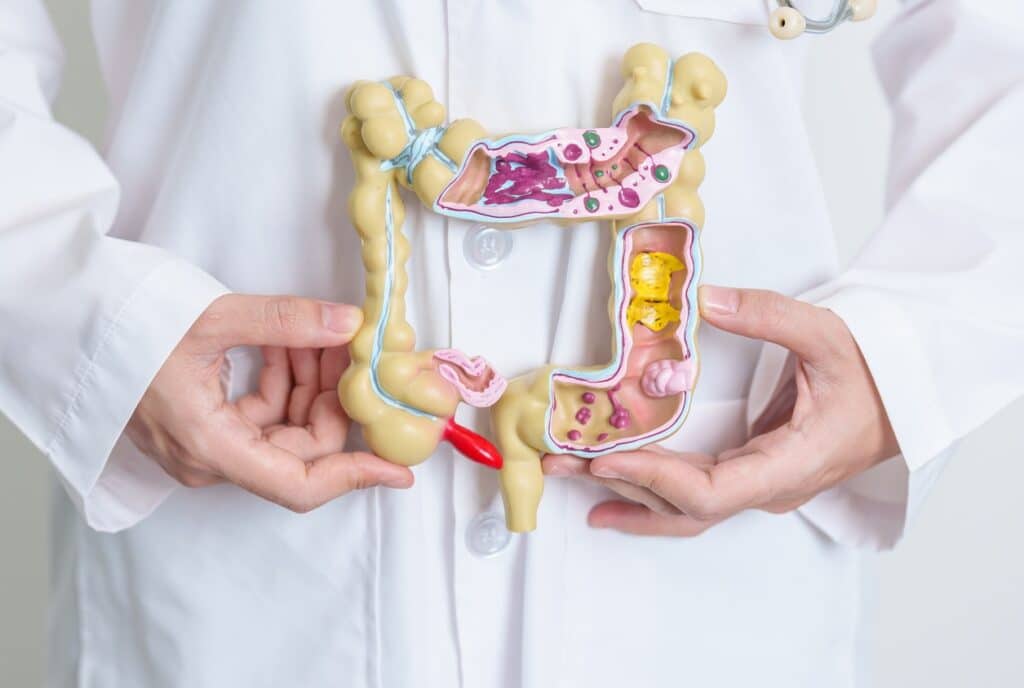Diarrhea Specialists in Concord, NC
What is Diarrhea?
Diarrhea describes bowel movements that are loose and watery. It is common and often not serious. Many people will have diarrhea once or twice each year. Sometimes diarrhea is a symptom of irritable bowel syndrome or other chronic digestive conditions.
Common Symptoms of Diarrhea
Symptoms of diarrhea can be broken down into uncomplicated (non-serious) and complicated, which may be a sign of a more serious illness.
Symptoms of uncomplicated diarrhea include:
- Abdominal bloating or cramps
- Thin, loose, or watery stool
- Sense of urgency to have a bowel movement
In addition to the above, the symptoms of complicated diarrhea include:
- Blood, mucus, or undigested food in the stool
- Unexplained weight loss or fever
Common Causes of Diarrhea
The most common cause of diarrhea is a GI virus. The infection is sometimes called "stomach flu." Occasional diarrhea may also be caused by:
- Infection by bacteria (the cause of most types of food poisoning)
- Eating foods that upset the digestive system
- Medications
Diarrhea can also indicate a digestive condition, especially when it's persistent and/or occurs with other symptoms like bloody stools and unexplained weight loss. Potential gastrointestinal conditions that can cause persistent diarrhea include:
Are There Any Risk Factors For Diarrhea
Diarrhea can be caused by a variety of factors, and certain risk factors may increase the likelihood of experiencing diarrhea. Some common risk factors include:
- Infections: Bacterial, viral, or parasitic infections are common causes of infectious diarrhea. Consuming contaminated food or water, poor hygiene practices, and exposure to infectious agents can increase the risk.
- Contaminated Food and Water: Consuming food or water that is contaminated with bacteria, viruses, or parasites can lead to infectious diarrhea. This risk is higher in regions with poor sanitation and hygiene practices.
- Travel: Traveling to areas with different sanitation standards can expose individuals to new pathogens and increase the risk of developing travel-related diarrhea.
- Age: Infants and young children are more susceptible to diarrhea due to their developing immune systems and increased likelihood of coming into contact with pathogens in environments such as daycare settings.
- Immune System Compromises: People with weakened immune systems, such as those with HIV/AIDS, cancer undergoing treatment, or certain autoimmune conditions, may be more susceptible to infectious causes of diarrhea.
- Antibiotic Use: The use of antibiotics can disrupt the normal balance of bacteria in the intestines, leading to antibiotic-associated diarrhea. This is especially true with broad-spectrum antibiotics.
- Food Intolerances: Intolerance to certain foods, such as lactose intolerance or sensitivity to certain food components (e.g., artificial sweeteners), can contribute to chronic or recurrent diarrhea.
- Inflammatory Bowel Disease (IBD): Conditions such as Crohn's disease and ulcerative colitis, which are types of inflammatory bowel disease, can cause chronic diarrhea due to inflammation of the digestive tract.
- Certain Medications: Some medications, such as certain antacids, chemotherapy drugs, and medications that affect bowel function, may have diarrhea as a side effect.
- Stress and Anxiety: Emotional factors, including stress and anxiety, can contribute to functional diarrhea, where no underlying medical cause is identified.
It's important to note that the risk factors for diarrhea can vary depending on the specific cause. Diarrhea is often a symptom rather than a standalone condition, so addressing the underlying cause is key to effective management. If someone experiences persistent or severe diarrhea, it's advisable to seek medical attention for a thorough evaluation and appropriate treatment.
What is The Treatment For Diarrhea
If you have a mild case of diarrhea, you can just let it run its course and manage symptoms with over-the-counter medicine. You should drink at least six 8-ounce glasses of fluid per day. Chicken broth, tea with honey, and sports drinks are also good choices. Instead of drinking liquids with your meals, drink liquids between meals.
